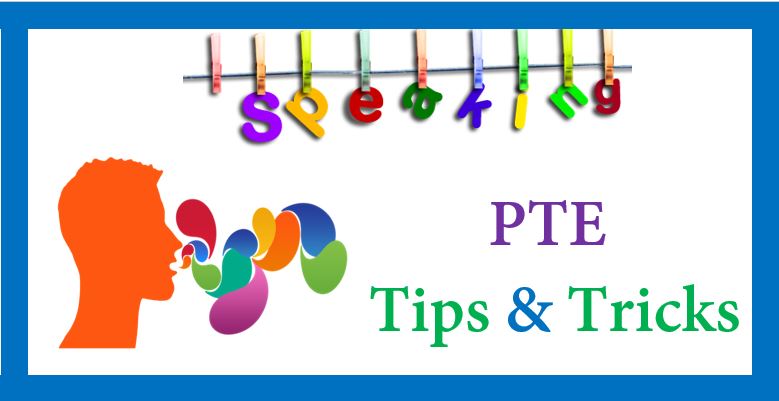Exams are coming up, the big day is looming, and deadlines are fast-approaching round the corner – yet you just can’t seem to knuckle down and get your head in the books. Sound familiar?
Many of us will be able to relate to the trials and tribulations associated with studying and revising but fear not: where there’s a problem, there is also a solution. So, here are few tips and tricks for you.
Speaking & Writing (77 – 93 minutes)
- Personal introduction
- Read aloud
- Repeat sentence
- Describe image
- Re-tell lecture
- Answer short question
- Summarize written text
- Essay (20 mins)
Passing an exam can be very different from speaking a language. While learning to pass a test is not as important as possessing the knowledge and skills it being tested, nevertheless it is an important step on your road to success. Using the study tips listed below will help your acquisition of English.
Speaking section of the PTE test is assessed on two key elements that you will definitely need to have in your repertoire – ‘Fluency’ and ‘Pronunciation’.
- Avoid Speaking Too Quickly
Oral fluency is measured by the flow of speech and correct use of the language (i.e. grammar). Pronunciation, at the same time, is measured by clear and natural articulation that is understandable to the native speaker of the language.
- Speak Distinctly & Loudly
You have to speak loudly and distinctly into the microphone. Further, there is also a possibility that you may get distracted by the noisy environment. One smart way to practice for this chaotic environment is to have a radio playing in backdrop while you practice speaking for the PTE test.
- Pay Attention To Your Pronunciation
Your English pronunciation is the first impression other people get when you speak. You may have excellent reading and writing skills and know all the grammar rules, but other people will judge your English by what they hear – your English pronunciation. If people have a hard time understanding you, they will think your English is not good.
- Sound Natural
Have you ever listened to a non-English speaker trying to communicate and it sounds like a computer speaking? This is fairly common because most people learn to speak from English from textbooks. Unfortunately, textbooks are not able to provide the feelings behind the words and it can come across as sounding rather robotic. Once you start attaching feelings and meaning to words, you will be amazed at how much smoother your English will sound.
- Avoid Long Pauses
When speaking, use frequent, short pauses. Avoid long pauses. Pause after important points to let these sink in. Also pause between phrases, deliberately illustrating commas, semicolons and periods. A simple trick is to count differently for each punctuation:
- For commas, count one
- For colons and semicolons, count to two
- For periods, count to three
- For the end of a paragraph, count to four
Pause to show you are thinking, considering a point.
Yes, the ‘aahs’ and the ‘uhms’. In day-to-day conversation, this is perfectly acceptable, but not in the PTE. People generally say gibberish like ‘aahs’ and ‘uhms’ when they are buying time to think of what to say next. The solution is to slow down and think about what you are going to say next. This means speaking mindfully, if not consciously. This is, of course, a hard skill to master. So you have to get a lot of practice and record yourself while speaking.
Follow these few PTE Tips and Strategies For 79+
How do you make your content sound better?
We have two tips for you here!
- Concentrate on the keywords being said during the lecture. You must jot them down on the erasable notepad provided to you. In other words, lay as much emphasis as you can on the keywords, phrases, sentences, or little chunks of words that sound important to you or hold all the gist of the lecture.
- Build your content. That means, write the answer in your own words using the keywords given in the question. The more key points mentioned in the lecture you include in your answer, the more likely you are to get a perfect score.
For PTE Tips and Tricks in Reading
For PTE Tips and Tricks in Listening
PTE Slot Booking


